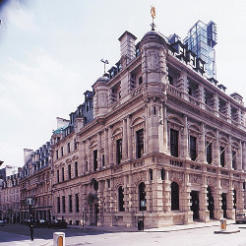Forcing grant beneficiaries to provide excessive feedback on impact measurement, runs the danger of turning the process into a "cottage industry”, warned the managing director of the Lloyd’s Register Foundation, Richard Clegg.
Speaking at an event on Friday to discuss the 21st century model for social business, Clegg said: “At the end of the day, it’s a cautionary thing. The last thing we want to do is to give people grants and then burn through those grants by asking them to spend it on feeding back to us.
“We need to be really quite clear and articulate about what it is that we want to measure and then measure it – without turning it into a cottage industry.”
Clegg said it was important for foundations to remember that the impact of grants would vary depending on the type of grantee.
“In terms of research, we realise that you can’t always predict the results – otherwise you wouldn’t need to do the research,” he said. “So although in some areas we don’t have a risk appetite, in other areas, the fact that we are in this space, means that we are taking a technical risk. So we have quite a high risk appetite in the research area.”
Trustee of the Lloyd’s Register Foundation Carol Sergeant said that although the Foundation takes a “cautious approach”, it aims to “take a risk” on organisations with “potential” as well as those that demonstrate good governance.
“We don’t just dive into an area,” she said. “We have experts and get them all together and ask them to debate. But the whole point is that we don’t know exactly what’s out there. The Alan Turing Institute is a very good example because we could see the potential out there and see what it could do.”
An important element in deciding grant beneficiaries is to look at the organisation's governance, Sergeant said.
“We look hard at the governance. It’s a cautious and self-assured approach. Our uniqueness is that we are prepared to go out there and take a chance in places where other people aren’t prepared to go.”
The Lloyd’s event was held in the wake of criticism in a report by the True and Fair Foundation in December that accused the Lloyd’s Register Foundation of spending just 1 per cent of donations on charitable activities. But the claim was later rubbished in a report by Pesh Framjee, head of the not-for-profit unit at Crowe Clarke Whitehill.
In his report Neither true not fair: A critique of the True and Fair Foundation’s review of charitable spending by UK Charities, Framjee said there were five “rudimentary errors and flaws” in the original report. These included comparing the income of a foundation with a large trading group; not understanding charity law in relation to large endowments; ignoring the impact of trading activities; not including expenditure on fixed assets and ignoring the impact of donations in kind.
The Foundation was established in 2013 and currently has a grant portfolio of £36m, with beneficiaries in 21 countries worldwide.
Impact measurement risks becoming a ‘cottage industry’, says Lloyd’s Register Foundation director
18 Jan 2016
News
Forcing grant beneficiaries to provide excessive feedback on impact measurement, runs the danger of turning the process into a "cottage industry”, warned the managing director of the Lloyd’s Register Foundation, Richard Clegg.

Lloyd's Register Foundation







